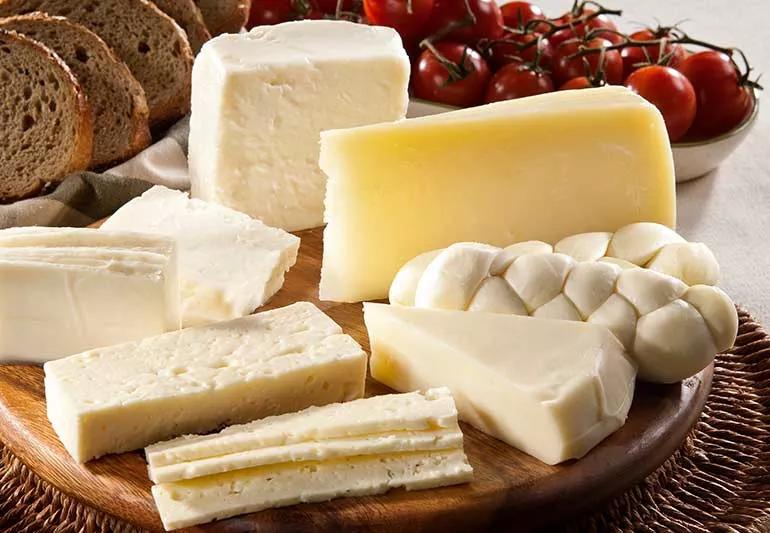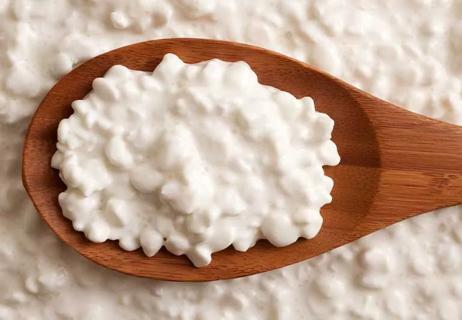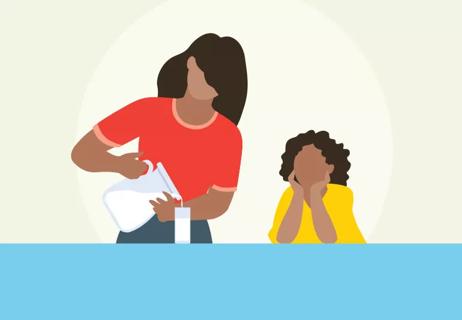Moderation is key: A good source of calcium and protein, but it’s also high in calories and sodium

It can be oozy. It can be gooey. It can taste sharp, buttery or salty. Those are just some of the factors that make cheese taste oh, so “Gouda.”
Advertisement
Cleveland Clinic is a non-profit academic medical center. Advertising on our site helps support our mission. We do not endorse non-Cleveland Clinic products or services. Policy
Whether you’re making a cheese board, putting a slice on a burger or snacking on a wedge, cheese — which has thousands of varieties like Gorgonzola, Camembert and pecorino Romano — seems to be omnipresent in our lives.
But is cheese good for you?
“Yes and no,” says registered dietitian Alexis Supan, MPH, RD. “Cheese does have some great benefits, but it also has some negatives, like its amount of saturated fat and sodium.”
So, let’s get a little cheesy as Supan explains the health benefits of cheese (and if you can eat it every day).
Sure, cheese is a staple in the kitchen, but how does it work within your body? Supan discusses some of the health benefits.
While you shouldn’t brush your teeth with cheese (eww!), eating cheese may help reduce cavities in a few different ways. When you chew cheese, it stimulates the flow of saliva in your mouth. Saliva helps to break down plaque and removes sugar.
And eating cheese may also reduce the amount of cariogenic bacteria in your mouth thanks to casein (cheese’s main protein) and whey protein found in cheese.
“This is kind of an unexpected perk to eating cheese,” says Supan. “Studies show that dairy does provide some protection to our teeth.”
Advertisement
Some studies have looked at how dairy products, including cheese, can help lower blood pressure. The thought is that angiotensin-converting enzymes-inhibiting bioactive peptides help with blood pressure regulation.
“I would take those studies with a grain of salt,” cautions Supan. “Cheese might have some properties that lower blood pressure, but the sodium content of cheese is also something that would raise blood pressure. So, I wouldn’t go overboard or start consuming cheese as a method of lowering your blood pressure.”
Some types of cheese like Brie, cheddar and blue contain conjugated linoleic acid (CLA), an omega-6 fatty acid found in dairy products and beef.
There’s still a lot we don’t know about CLA. While initial research shows that CLA may help improve your lipid panel and lower blood sugar levels, there’s been discussion about the adverse effects of CLA, as not many human studies have been conducted.
But studies also show that getting CLA from cheese or other foods may be better than just taking a CLA supplement.
“One thing to know about CLA, and cheese in general, is that we tend to get more nutrients and amounts of CLA when we eat grass-fed versions of cheese,” says Supan.
The label and packaging will typically highlight if a cheese has been made with 100% grass-fed milk, meaning the milk comes from cows that eat grass and only grass.
Cottage cheese, provolone and Swiss are among the types of cheese that contain probiotics, the good bacteria that can maintain or help achieve a healthy gut microbiome.
“There are certain cheeses that can help your gut health,” says Supan. “Options like cheddar, Parmesan, Gorgonzola and Gouda are all excellent cheeses when it comes to providing us some good bacteria and keeping our gut happy.”
Omega-3 fatty acids can be beneficial to various parts of your body: your brain, heart, eyes, immune system and digestion system.
Your body doesn’t efficiently produce unsaturated fatty acids, so we typically get the nutrient from foods like fish. The U.S. Department of Agriculture (USDA) recommends that adults get 8 or more ounces of oily fish each week, which is about 250 milligrams of omega-3s.
“There’s actually a good amount of cheeses that have omega-3 fatty acids,” says Supan. “The thing to note here is that the grass-fed dairy tends to be a little bit better for us. And we want to try to get more omega-3s in our diet because the standard American diet has us getting too little.”
Advertisement
So, is cheese healthy?
It contains calcium, fat and protein — and it also contains amounts of vitamins A and B12, as well as zinc and a riboflavin. Cheese contains selenium, too, an antioxidant that aids our immune systems.
“For a lot of people, cheese is the main source of calcium in their diet,” says Supan. “It can be a great way for people to meet those calcium needs. It also provides protein, which is something people might not think about at the time. But we need protein to keep our muscles strong and healthy.”
And remember, the best way to get calcium is from your diet, not from a supplement.
“If you feel you need it from a supplement, you always want to talk to your doctor before adding any supplements,” she adds.
Now, for the downside: Cheese is high in calories, saturated fat and salt, and low in fiber.
“Someone with severe heart issues who is really trying to watch their blood pressure should probably greatly limit or omit cheese just to be on the safe side because of the amount of saturated fat and sodium,” states Supan.
So, let’s get to the question we’re all wondering: Can you eat cheese every day?
It all depends on what the rest of your diet looks like.
“If your diet, in general, is very low in saturated fats and sodium, having two to three ounces of cheese a day may be safe,” says Supan. “If you’re trying to eat healthy or have any heart concerns, I would try to stick to one ounce of high-quality cheese a day, or maybe even less than that a few times a week.”
Advertisement
If you’re pregnant, doctors advise against eating soft cheese, as there can be a small chance that those varieties are unpasteurized and may contain Listeria. And if you’re lactose-intolerant, some cheeses like Muenster and Parmesan have lower amounts of lactose.
“But it really is best to try and limit how much cheese you’re having if you are lactose-intolerant,” says Supan. “Having too much can harm your gut.”
So, when you weigh the downside, is cheese worth all the hype?
“Cheese has clear-cut benefits,” says Supan. “While you should be cautious with the amount of cheese you eat because of some of the negatives, enjoying some cheese in moderation is definitely appropriate.”
Advertisement
Learn more about our editorial process.
Advertisement

Health officials say that consuming unpasteurized milk increases potential exposure to harmful bacteria

There’s definite nutritional value in chocolate milk, but the added sugar and calories can be a concern

Medications, dietary changes, abdominal massage and physical activity can all help you start to feel better

Experiment with numerous dairy alternatives or try taking a lactase enzyme medication before you eat dairy

Lactose is difficult to breakdown and digest because of its complexity

Be sure to check the labels of common foods like canned tuna, bread, hot dogs and chocolate

This dairy product can help you lose weight, manage blood sugar and strengthen bones

Rich in calcium and protein, milk has 18 of 22 essential nutrients that your body needs

Wearing a scarf, adjusting your outdoor activities and following your asthma treatment plan can help limit breathing problems

Your diet in the weeks, days and hours ahead of your race can power you to the finish line

When someone guilt trips you, they’re using emotionally manipulative behavior to try to get you to act a certain way